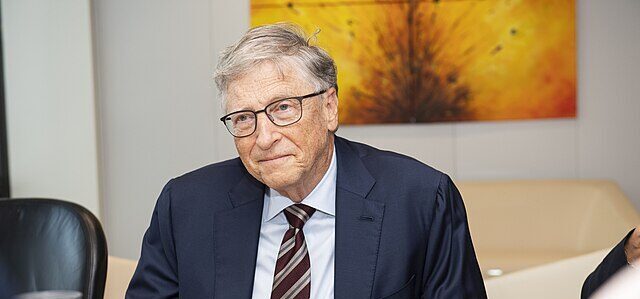Rewatching the French New Age cinema classic, ‘The Contempt’ (le Mépris) offers an insight into our relationship with power. The film reflects upon the role and history of cinema and analyses how people react to power told through the vicissitudes of a husband-wife relationship. The heroine despises her husband upon realizing his servility to an undue power, and as a result her husband’s legitimacy vanishes.
In our work we are all confronted by power. Conversations around power relations and the sharing of power are becoming increasingly relevant in philanthropy. Questioning this relationship with power has become even more salient in an overall context of democratic decline.
The concept of power-sharing is based on the recognition of unequal power relations and deals with the sharing of resources, access, and privileges. A prerequisite to sharing power is a critical reflection process on the power of established organizations that have economic, social, cultural, and symbolic capital and their willingness to change existing conditions.
Shifting power can take multiple forms. In terms of practical implementation, this is primarily expressed in the design of funding relationships – how choices are made to fund and how funds are distributed. This can mean the representation of people with lived experience on juries, but also the establishment of external committees or the involvement of partners in design and strategic processes. There are also technical steps such as adapting the due diligence, simplifying application processes, and providing advice and feedback on submitted applications. In addition to financial support, other ways to shift power include opening network access for partners and helping them build their reputations.
At NEF, we understand shifting power as sharing the responsibility for how information is interpreted and how subsequent decisions are made by actively involving marginalized and underrepresented communities in our structure, thus visibly recognizing the expertise of our partners.
What it looks like in practice?
Power sharing in philanthropic collaboratives with complex operational and governance systems is not easy. NEF’s collaborative funds are already built in a decentralized manner in which funders come together and decide collectively. To an extent, partner foundations at NEF’s collaborative funds are already giving up power by working together and making decisions based on consensus.
All foundations have an equal vote, regardless of their financial contribution, and all collaborative funds hold consultations with people with direct knowledge of the issues at hand. However, over the past years, many NEF collaborative funds have felt that certain voices are missing, hence our ambition to design more inclusive decision-making structures.
Embarking on a journey to shift power has meant reconsidering our decision-making structures and ways of functioning. So far, this has also included an internal diversity and equity inclusion process, co-designing programs with their potential beneficiaries, creating new governance and grantmaking structures and centring the voices of those at the heart of the matter.
‘Power sharing only works if established organizations and foundations can see its added value. The challenge in communicating this added value is the (often incorrect) assumption that power sharing only means a loss and a reduction in the influence of those already at the table.’
For example, the new Healthy Food Healthy Planet (HFHP) fund focuses on movement building and grant making in which participation, dismantling hierarchies and addressing power dynamics are gaining momentum. It has put this in action through a series of sub-national grants to build healthy, just, and sustainable food environments, by convening stakeholders, creating shared infrastructure, and nurturing local food producers.
EPIM on the other hand has recently attempted to locate where decision-making power sits, and identify ways that this can become more democratic, objective, legitimate and future-proof. While shifting power can be overwhelming task, especially if decisions have been made in the same way for 18 years. NEF has provided EPIM the flexibility to start and explore different paths, test assumptions, learn, potentially get it wrong and try again – something that has develop iteratively through a process of trial and error.
In 2024, EPIM will establish a mixed governance structure, by involving non-funders in decision-making. In practice, this means that every decision on strategy, budget and grants will be made a group comprised of both funders and non-funders with relevant knowledge and connection to the issues.
To get to this point, EPIM built upon a system-driven sense-making process; as part of its Ukraine response implemented over the past 18 months it brought together 40 key partners from civil society, government, philanthropy, and the business world, to make and fund in Central and Eastern Europe. Moving away from the classic consultation process, EPIM offered a space to think and develop a shared understanding of the issues and identify opportunities for intervention. Similarly, EPIM is testing the delegation of decision-making power to a group of practitioners under a pilot initiative on the deskilling of professionals with a migration background in Europe.
What we’ve learned so far
Shifting power requires creating the right conditions for this shift. These include:
- Working with people who are aligned with the values and vision of NEF and its collaborative funds is essential.
- Setting boundaries and managing expectations and being transparent with communication is a necessity when talking about power and changing roles. For NEF, this means being transparent about our conflict-of-interest policy, regulatory and reputational risks and any due-diligence related vetoes.
- Working with external facilitators can help navigate existing power dynamics, ensuring that different people can engage in the conversations and meaningfully contribute with their ideas.
- Acknowledging that people offer different skills and that welcoming different types of contributions from lived experience to academic and professional expertise to inform philanthropic processes is also a form of power sharing.
- Budget and plan flexibly: People involved in the process should be compensated for their time. And flexible planning and revisiting new decision-making structures regularly is essential to ensure their viability.
Power sharing only works if established organizations and foundations can see its added value. The challenge in communicating this added value is the (often incorrect) assumption that power sharing only means a loss and a reduction in the influence of those already at the table. This assumption can often be revised by pointing out the gains: reputation and network growth, more impact by reaching the right target groups and most importantly more legitimacy.
To conclude, a few “power-sharing experiments” are currently underway at NEF. Social changes throughout history have always taken more than one single actor. We need to share power to create shared energy, willingness, and purpose among different people across the ecosystem. We are conscious of the fact though that not all our collaborative funds will take the same path, and we don’t expect them to. Our projects work in specific contexts with different constituencies. It is up to them to set the bar for sharing dynamic where relevant and appropriate – this is not something that can be forced.
There are many questions yet to answer: How can we structure power sharing in a way that does not undermine the overall mission of the collaborative project? How do we maintain the double accountability under which we operate: towards the funders and towards the CSOs we support in our field building objective?
At NEF, while we don’t have all the answers we are committed to learning and pursuing our sharing of experiences around power sharing and see the work done so far as small step to a more equitable world.
Peggy Saïller is the Executive Director NEF, Sophie Ngo Diep is the Co-Director at EPIM, and Markus Lux is a senior vice president at Robert Bosch Stiftung and a Board Member at NEF
Credit:Source link



